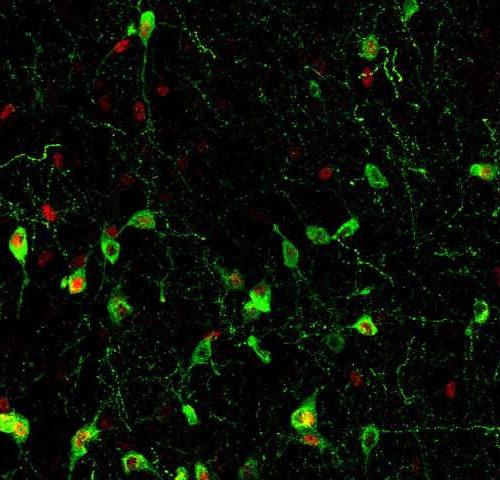CACTUS COMMUNICATIONS A good night’s sleep is essential for a healthy body and mind, for when we sleep is when the body resets, repairs, and refreshes itself. A lot of people, however, have trouble falling or staying asleep, a condition known as insomnia that affects up to 30% of the population. It is usually caused...
Tag: <span>Insomnia</span>
Effective treatment for insomnia delivered in a few short phone calls
by Jake Ellison, University of Washington In a new study, researchers found that effective therapy for insomnia for people over 60 who also have joint pain can be delivered in a few sessions over the phone. Credit: Joshua Hoehne/Unsplash Insomnia—trouble falling asleep, staying asleep or waking up too early—is a common condition in older adults. Sleeplessness can be...
Individuals with high ADHD-traits are more vulnerable to insomnia
Individuals with high ADHD-traits that do not meet the criteria for a diagnosis are less able to perform tasks involving attentional regulation or emotional control after a sleepless night than individuals with low ADHD-traits, a new study from Karolinska Institute published in Biological Psychiatry: Cognitive Neuroscience and Neuroimaging reports. Image credit: Pxhere, CC0 Public Domain While...
Insomnia, sleeping less than six hours may increase risk of cognitive impairment
by Zachary Sweger, Pennsylvania State University Middle-aged adults who report symptoms of insomnia and are sleeping less than six hours a night may be at increased risk of cognitive impairment, according to a study by Penn State College of Medicine researchers. The results may help health care professionals understand which patients who report insomnia are at...
The neurons that connect stress, insomnia, and the immune system
by Cold Spring Harbor Laboratory A section of mouse brain stained to show the ‘insomnia’ (hypocretin/orexin neurons in green). The red inside some cells indicates which neurons were recently active (cFos). Credit: Jeremy Boringer Scientists at Cold Spring Harbor Laboratory (CSHL) and Stanford University have pinpointed the circuit in the brain that is responsible for sleepless...
INFLAMMATION MAY LINK BAD SLEEP AND HEART DISEASE
New research begins to reveal how disrupted sleep leads to the fatty arterial plaque buildup known as atherosclerosis that can result in deadly heart disease. “We’ve discovered that fragmented sleep is associated with a unique pathway—chronic circulating inflammation throughout the blood stream—which, in turn, is linked to higher amounts of plaques in coronary arteries,” says...
Fitful nightly sleep linked to chronic inflammation, hardened arteries
Disrupted nightly sleep and clogged arteries tend to sneak up on us as we age. And while both disorders may seem unrelated, a new study from the University of California, Berkeley, helps explain why they are, in fact, pathologically intertwined. UC Berkeley sleep scientists have begun to reveal what it is about fragmented nightly sleep...
The skinny on why poor sleep may increase heart risk in women
NEW YORK, NY (Feb. 17, 2020)–Women who sleep poorly tend to overeat and consume a lower-quality diet, according to a new study from researchers at Columbia University Irving Medical Center. The findings provide new insight into how poor sleep quality can increase the risk of heart disease and obesity and points to possible interventions for...
Insomnia may forecast depression, thinking problems in older people
For the study, the investigators analyzed data on nearly 600 people over age 60 who visited primary care centers in New York City, Philadelphia and Pittsburgh. All had some level of depression. Compared to patients whose sleep improved, those with worsening sleep problems were about 28 times more likely to be diagnosed with major depression...
Persistent and worsening insomnia may predict persistent depression in older adults
by Johns Hopkins University Bloomberg School of Public Health Older adults with depression may be at much higher risk of remaining depressed if they are experiencing persistent or worsening sleep problems, according to a study from researchers at Johns Hopkins Bloomberg School of Public Health. The researchers, who published their findings online April 30 in...





